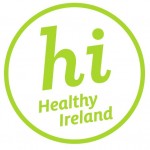Professor Cliona Ni Mhurchu
Editor note: This blog was prepared by Prof Cliona Ni Mhurchu whilst she was visiting her home-country, Ireland. Cliona sent an email to myself and other Kiwis during that time outlining the strong actions that the Irish Government is planning on obesity and food – a far cry from the state of play in New Zealand. Which has led to this blog, in which Cliona makes the head-to-head comparison on food and obesity policy (in)activity between Ireland and New Zealand. Tony Blakely.
In the last couple of years the Irish rugby team gave the All Blacks cause to sit up and take notice not just once but twice. The first occasion was during the 2nd test match in 2012 where the ABs narrowly won with a drop kick minutes before the end, and the second was late last year in Dublin when the ABs won by a margin of just 2 points. Optimistic Irish rugby fans are increasingly convinced that the day will come when Ireland will beat New Zealand at its own game.
 There is one area where Ireland is already leading the way however and that is with its cross-sectoral ‘whole of government’ approach to improving health and tackling obesity in the country’s quest to become a healthier and more prosperous nation. There are a number of parallels between Ireland and New Zealand: both are English-speaking, small countries (the Republic of Ireland has a population of 4.6M) with strong agricultural sectors that are situated on the periphery of their respective geographic/economic trading regions. Both countries also have very high rates of overweight and obesity (61% Irish adults and 25% Irish children are overweight/obese compared with 65% of New Zealand adults and 33% of children). What is different however is how the two countries are tackling a problem that has serious impact on morbidity and mortality rates, and costs New Zealand in excess of $700M a year in healthcare expenditure and lost productivity (1).
There is one area where Ireland is already leading the way however and that is with its cross-sectoral ‘whole of government’ approach to improving health and tackling obesity in the country’s quest to become a healthier and more prosperous nation. There are a number of parallels between Ireland and New Zealand: both are English-speaking, small countries (the Republic of Ireland has a population of 4.6M) with strong agricultural sectors that are situated on the periphery of their respective geographic/economic trading regions. Both countries also have very high rates of overweight and obesity (61% Irish adults and 25% Irish children are overweight/obese compared with 65% of New Zealand adults and 33% of children). What is different however is how the two countries are tackling a problem that has serious impact on morbidity and mortality rates, and costs New Zealand in excess of $700M a year in healthcare expenditure and lost productivity (1).
For the last several years, the approach to obesity in New Zealand has been that what we eat and how we live are matters for individual responsibility – not government leadership, influence and intervention. In that time we have seen national obesity rates climb from 26.5% of adults and 8% of children in 2006/07 to 31% and to 11% respectively in 2012/13. The recent announcement of the Healthy Families NZ programme is welcome, but our dismal inability to reverse (or even slow) obesity trends so far suggests that far more must be done. The Irish approach to the obesity problem has not been an ‘either/or’ approach but rather a comprehensive approach that supports development of personal skills AND facilitates environments that support healthier choices:
“People of course have a fundamental right to choose to eat what they want and to be as active as they wish. That is not the issue. What the National Taskforce on Obesity has had to take account of is that many forces are actively impeding change for those well aware of the potential health and well-being consequences to themselves of overweight and obesity. The Taskforce’s social change strategy is to give people meaningful choice. Choice, or the capacity to change (because the strategy is all about change), is facilitated through the development of personal skills and preferences, through supportive and participative environments at work, at school and in the local community, and through a dedicated and clearly communicated public health strategy.”
 Ireland’s Special Action Group on Obesity established by the Minister for Health in 2011 provides an excellent example of a government-led, evidence-based approach to tackling obesity. Immediate priorities identified were:
Ireland’s Special Action Group on Obesity established by the Minister for Health in 2011 provides an excellent example of a government-led, evidence-based approach to tackling obesity. Immediate priorities identified were:
- Implementation of a 20% tax on sugar-sweetened drinks
- Front-of-pack nutrition labelling (likely to be traffic light labels given significant crossover in food supply between Ireland and the UK)
- Restrictions on marketing of food and drinks to children
- Calorie posting on menus
- Revised food pyramid and healthy eating guidelines
Recent proposals focus on what are termed ‘top-shelf foods’ (those high in fat, salt and sugar (HFSS) at the top of the food pyramid) and include:
- Reformulation of foods to reduce sugar, salt, fat
- Code for food sponsorship and sport
- Healthy vending machines in schools
- Code relating to placement of HFSS foods in retail food outlets (removal from checkouts and removal from children’s eye level)
- Healthy school meals programme (€37M government investment)
- Support and expansion of fruit in schools programme
- Healthy catering guidelines
- Promotion of healthy eating and social media campaigns
The strong government leadership and comprehensive approach taken by Ireland in tackling a problem that no country has successfully overcome in the past three decades (2) is to be applauded. The chances of success appear good given that this is a country with a track record of taking bold steps on health initiatives: Ireland was the first country in the world to ban smoking in workplaces in 2004, and the cabinet is currently drafting laws to compel tobacco companies to use plain packaging on products sold in the Republic.
Ireland has made the health of its people – and now reduction of obesity – a clear public health priority. Will New Zealand get back in the game and do the same?
References
1. Lal, A., et al. (2012). “Health care and lost productivity costs of overweight and obesity in New Zealand.” Australian and New Zealand Journal of Public Health 36: 550-556.
2. Ng, M., et al. (2014). “Global, regional, and national prevalence of overweight and obesity in children and adults during 1980-2013: a systematic analysis for the Global Burden of Disease Study 2013.” The Lancet.


Well done to Ireland for shaping the health and well being of their population. A better value for money as expecting years of prosperity ahead of them. I encourage all NZ citizenship, now it a good time for pre election to advocate for these changes and take Ireland as your role model for better health outcomes. I acknowledging the implementation of the rating star on food label, but this is not enough, not even scratching the surface of the obesity issue. More need to be done right now, right here before it too late. Faafetai Lava.(Thank you)
Thank you Cliona. Yes it is time to act. Yes I agree that New Zealand should take up the challenge. Maybe we should see how people of NZ and communities can mount the pressure and get the government to act. After all they are the majority and they are the ones who cast the votes and determine who should be in government.